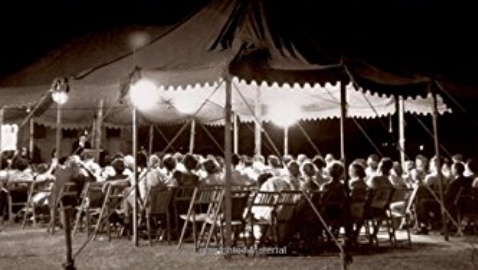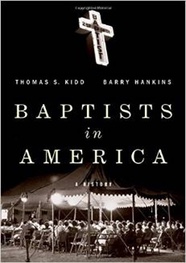The Surprising Thing Baptists and Muslims Have in Common

Recently, Republican State Representative Jeff Leach of Plano, Texas, filed a bill intended to prohibit judges from using “foreign law” in Texas. His bill clearly came in response to the creation of a Sharia Law Court in the Dallas area intended to adjudicate cases among Muslims where Sharia law and Texas civil law are at odds. I’m confident that if passed, Leach’s law would be struck down by the Supreme Court.
In a similar situation, a law against animal killing in Hialeah, Florida was ruled unconstitutional in 1993. The law prohibited the “unnecessary killing of an animal in public or private.” It exempted virtually all forms of animal killing—hunting, meat packing, euthanizing of pets, etc.—except one, animal sacrifice, which just happened to be a ritual of the local Santeria religious group. The Supreme Court ruled that the law failed the “general applicability” test that laws must pass in order to avoid being an unconstitutional restriction on religious freedom. If a government cannot have a law aimed at Santeria, it is doubtful there can be one aimed at Muslims. But in a climate of fear concerning Islamic terrorism, who can be sure?
 But what if
Baptists, like Muslims, wanted to live by a different set of laws
than the state of Texas or the United States? Funny you should ask,
since in the run up to the Supreme Court’s gay marriage case, the
Texas Baptist Christian Life Commission (CLC) urged churches to
insert in their bylaws a clause specifically defining biblical
marriage. Anticipating the Court’s ruling, expected in June, CLC
writer John Litzler said that if gay marriage becomes legal, this
“will affect the relationship of all Texas Baptist churches in
their dealings with local, state, and federal laws.”
But what if
Baptists, like Muslims, wanted to live by a different set of laws
than the state of Texas or the United States? Funny you should ask,
since in the run up to the Supreme Court’s gay marriage case, the
Texas Baptist Christian Life Commission (CLC) urged churches to
insert in their bylaws a clause specifically defining biblical
marriage. Anticipating the Court’s ruling, expected in June, CLC
writer John Litzler said that if gay marriage becomes legal, this
“will affect the relationship of all Texas Baptist churches in
their dealings with local, state, and federal laws.”
Under current civil rights law, churches should be exempt from a redefinition of marriage. But no one can be sure where this issue may go in the future. It is possible that churches could be required under antidiscrimination laws to accommodate requests for use of their facilities for gay weddings. It would not be hard to imagine churches losing their tax exempt status for refusing. In 1983, Bob Jones University lost its tax exempt status for not allowing interracial marriage among its students (a policy since rescinded).
Issues of race are the analogy most often used by gay marriage activists. They point specifically to Loving v. Virginia (1967) that ruled bans on interracial marriage unconstitutional. If the Supreme Court rules state bans on gay marriage likewise unconstitutional, and then rules that the state has an “overriding interest” in protecting the right to gay marriage, the next step would be to require religious organizations to recognize gay marriage or forfeit their tax exempt status.
That is why the CLC offered a model three-sentence definition of biblical marriage for churches to incorporate into their own bylaws. If challenged by the state, a congregation can point to its own bylaws to make the case that marriage is part of its religious practice and therefore protected from infringement under the First Amendment.
So, what does the CLC warning to Baptists on gay marriage have to do with Sharia law? It’s simply this: Muslim leaders acknowledge that their religious practices are at odds with some facets of American law. Baptists are beginning to realize the same thing could happen to them. Under Sharia law, a panel of Muslim clerics wants the right to say to mosque members, “American law may say you can divorce or have an abortion, but Sharia says ‘maybe not.’ ” Likewise, Baptists want to be able to say, “American law may say gay marriage is legal, but it will not be practiced in a Baptist church. Baptists live by a different moral code.” Of course the individual Muslim or Baptist can choose to leave the mosque or church. Neither Sharia law nor Baptist bylaws can be enforced by the state.
It has been a long time since Baptists have had to live with this sort of tension between their theology and their nation’s civil law, but it was once the norm. As my new book Baptists in America: A History shows, for the first two centuries of their history Baptists were outsiders. In order to practice their faith they had to violate laws. Their colonial governments said they had to pay religious taxes. They refused. In England they were not allowed to hold a worship service within five miles of an Anglican Church. They did anyway. They were fined, horsewhipped, and jailed. By the twentieth century Baptists had become the largest cohort of religious believers in America. They had also become political insiders in many places and even dominant in the South. It remains to be seen if they can remember how they lived when this wasn’t so.